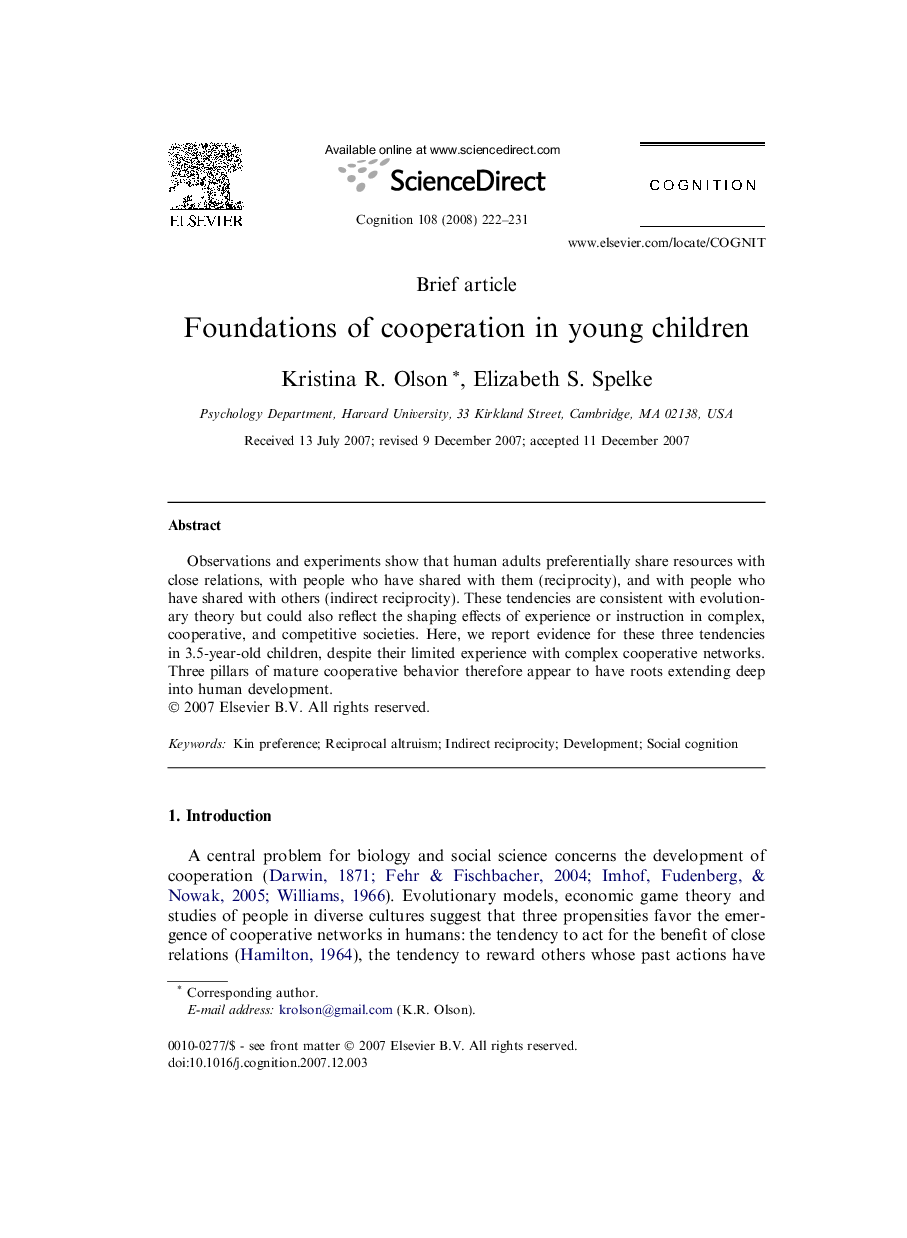| Article ID | Journal | Published Year | Pages | File Type |
|---|---|---|---|---|
| 926688 | Cognition | 2008 | 10 Pages |
Abstract
Observations and experiments show that human adults preferentially share resources with close relations, with people who have shared with them (reciprocity), and with people who have shared with others (indirect reciprocity). These tendencies are consistent with evolutionary theory but could also reflect the shaping effects of experience or instruction in complex, cooperative, and competitive societies. Here, we report evidence for these three tendencies in 3.5-year-old children, despite their limited experience with complex cooperative networks. Three pillars of mature cooperative behavior therefore appear to have roots extending deep into human development.
Related Topics
Life Sciences
Neuroscience
Cognitive Neuroscience
Authors
Kristina R. Olson, Elizabeth S. Spelke,
